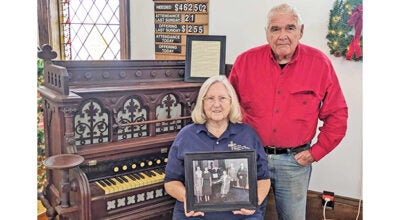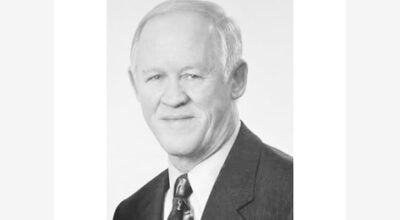Parade carries history as well as blossoms
Published 3:45 pm Thursday, May 2, 2013
As Southwest Michigan prepares to celebrate the Grand Floral Parade on the first Saturday of May, it may surprise younger generations that the parade is only a part of an entire festival rooted in the agricultural industry and bounty of the region. The Blossomtime Festival officially begins the weekend before the parade — with the Blessing of the Blossoms.
The southwest corner of Michigan was already a thriving fruit belt by the late 1800s. The special microclimate fed local needs and produced a surplus that was shared with the Chicago market.
Then one spring Sunday in 1906, the story goes, one William Cady, the pastor of Benton Harbor’s First Congregational Church, ended his service by telling folks to drive into the orchards and enjoy the blossoms — and the Blossomtime Festival was born. It is the popular story, according to Bob Myers of the Berrien County Historical Society.
“It’s a nice story,” said Myers, “but not entirely true. It actually began with the Graham & Morton Transportation Company. They ran passenger ships back and forth from Chicago promoting Blossom Sunday. It was really a way to get people to take passage on the ship.”
It was the same with the Interurban.
“Blossom Sunday was the first Sunday in May, and this was an established thing by the time he [William Cady] picked it up in 1906.”
Cady did preach the sermon though, that Sunday in 1906, choosing, according to Myers, Isaiah 35:1 as the text and topic of the day: The desert shall rejoice and blossom as the rose. And so, if Cady didn’t exactly create the occasion, he did help cement it.
Over the years, Blossom Sunday became the Blossomtime Festival, with pageants to select community “royals” to preside over the Grand Floral Parade. It has evolved, of course, and suffered “suspensions” in war and other times, but it remains popular. Blossomtime was incorporated in 1951, and since that time the festival has begun with the Blessing of the Blossoms and culminated a week later with the Grand Floral Parade.
For decades the Blessing of the Blossoms was held at Walter Miller Farms (then-owned by Walter’s son Stanley) in Benton Harbor. The ceremony was religious in nature, with hymns, and prayers, and responsive readings. The events drew hundreds of people.
Great care was taken to make the events inclusive and interdenominational. A program from the 1972 Blessing of the Blossoms lists no fewer than 13 participating clergy–from Rabbi Wayne Franklin to representatives from the United Methodist , Greek Orthodox, Roman Catholic, Baptist, Lutheran, Episcopal, Presbyterian, Congregational, and other churches. The purpose of the ritual, as stated in the program, was to recognize God’s sovereignty and man’s stewardship over the earth, and to ask God’s blessing over the “productivity on the earth.” Part of the purpose was a pledge to share those blessings with others.
The Blessing of the Blossoms is less formal today, but it is still the official start of the Blossomtime Festival. Ironically it still takes place on Walter Miller’s farm. In the late 1980s, the Miller family sold the farm at the corner of Napier and Hillandale to Michigan State University. It is now the site of the MSU Extension–and of the 2013 Blessing of the Blossoms.
“Every year, we start our festival with the Blessing of the Blossoms,” said Blossomtime Festival president Anna Abdelnour. “It gets us back to what the festival is all about. It means so much to so many people. The public’s invited, and we encourage people to come out. It makes you feel good to be a part of southwest Michigan.”
The Blessing of the Blossoms takes place Sunday, April 28 at the MSU Extension beginning at 2:00 p.m. After the Blessing, Blossomtime kings and queens head for the House of David for an old-fashioned game of baseball. It’s a nice way to launch the growing season.





